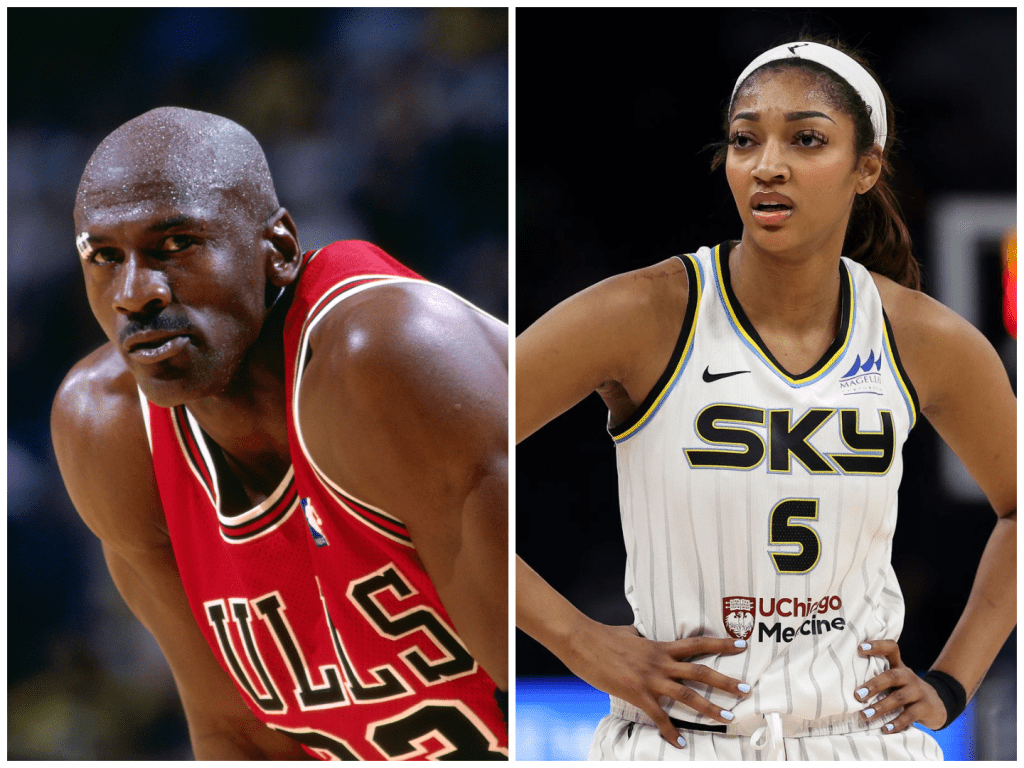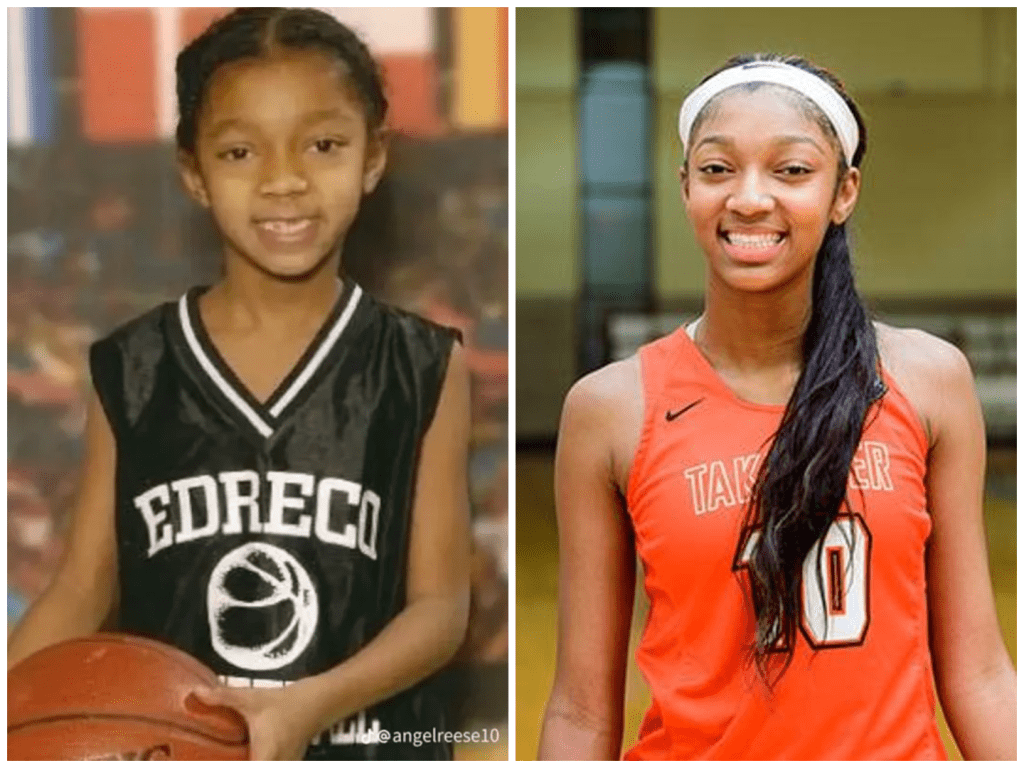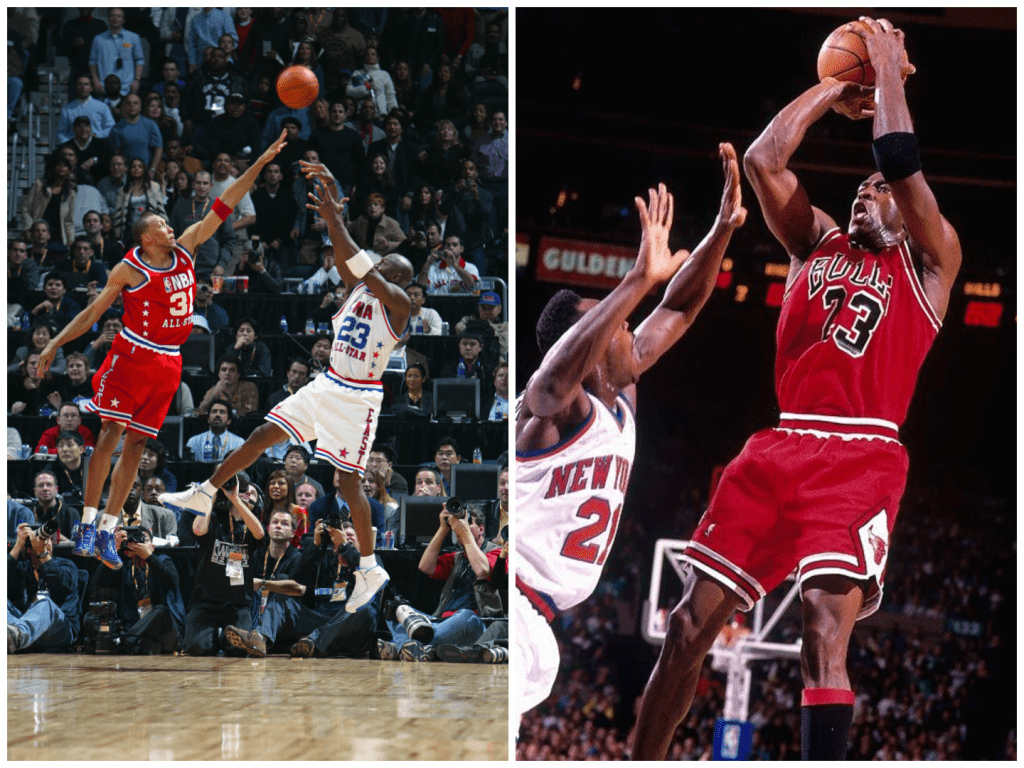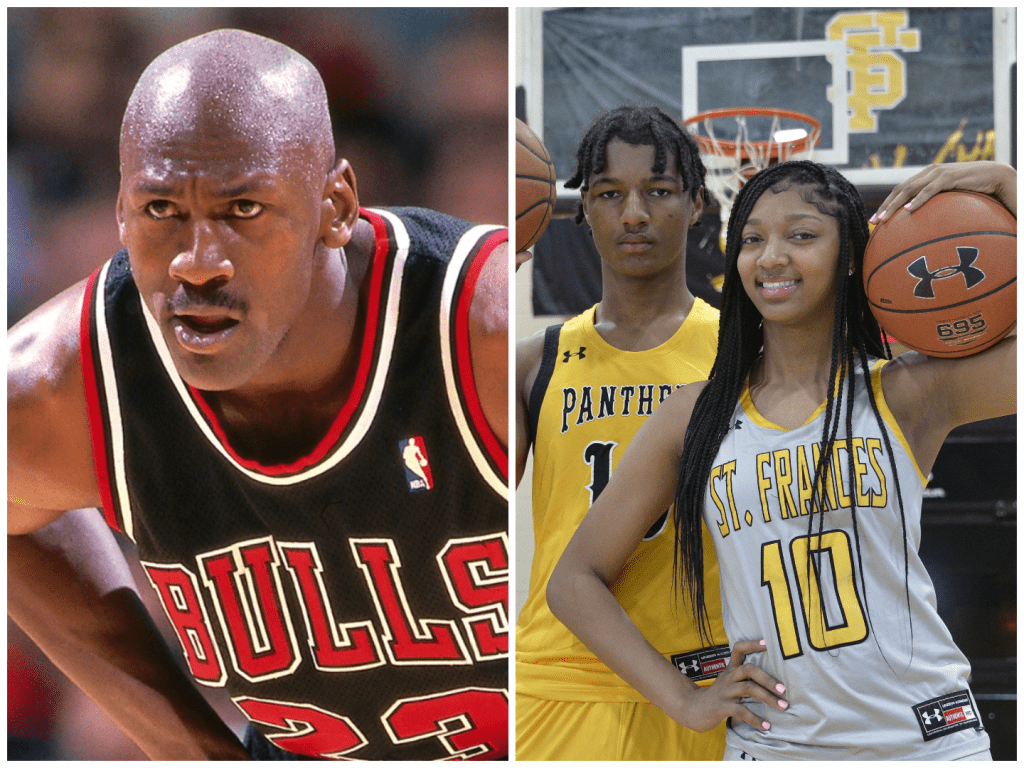In the ever-evolving landscape of professional basketball, few moments capture the intersection of audacity and aspiration quite like Angel Reese’s recent declaration that she modeled her game after Michael Jordan, a statement that has sent shockwaves through the basketball community and ignited passionate debates about legacy, ambition, and the courage to dream beyond conventional boundaries. When the rising WNBA star was asked at a public appearance which NBA legend her game resembled, her unhesitating response of “Michael Jordan” wasn’t just an answer—it was a manifesto of belief, a declaration of intent that revealed the profound depths of her basketball philosophy and the unwavering confidence that has defined her meteoric rise through the ranks of professional basketball.

The basketball world’s reaction illuminated a fundamental tension in how we discuss athletic ambition, particularly when it comes to young players who dare to mention themselves in the same breath as established legends. Analysts began dissecting Reese’s statistical performance, comparing her rebounding numbers, defensive metrics, and clutch-time execution to Jordan’s early career achievements, while social media users created endless comparison videos and debate threads about whether her playing style truly reflected Jordan’s influence. However, this intense scrutiny missed the deeper significance of her statement: it wasn’t necessarily a claim of equivalence but rather an acknowledgment of inspiration, a recognition that greatness is often built upon the foundation of studying and emulating those who have already reached the pinnacle of their sport.
Reese’s defensive philosophy, in particular, seems to embody the Jordan influence she describes, as she approaches each possession with the kind of relentless intensity that characterized Jordan’s approach to shutting down opposing players. Her willingness to dive for loose balls, contest every shot, and maintain defensive pressure throughout entire games reflects the understanding that elite players make their impact felt on both ends of the court, not just through scoring highlights but through the less glamorous work of disrupting opponents’ rhythm and creating opportunities for teammates. This comprehensive approach to the game suggests that her study of Jordan extended beyond surface-level observation to a deeper appreciation for the mental and physical demands of championship-level basketball.



As Angel Reese continues to develop her professional career and build her own legacy, her bold declaration about modeling her game after Michael Jordan will likely be remembered not as a moment of controversy but as a defining statement of ambition and belief. Whether she ultimately reaches the heights of her chosen inspiration remains to be seen, but her willingness to publicly embrace such lofty aspirations has already established her as a player unafraid to chase greatness, regardless of the critics or doubters who might question her journey along the way.
